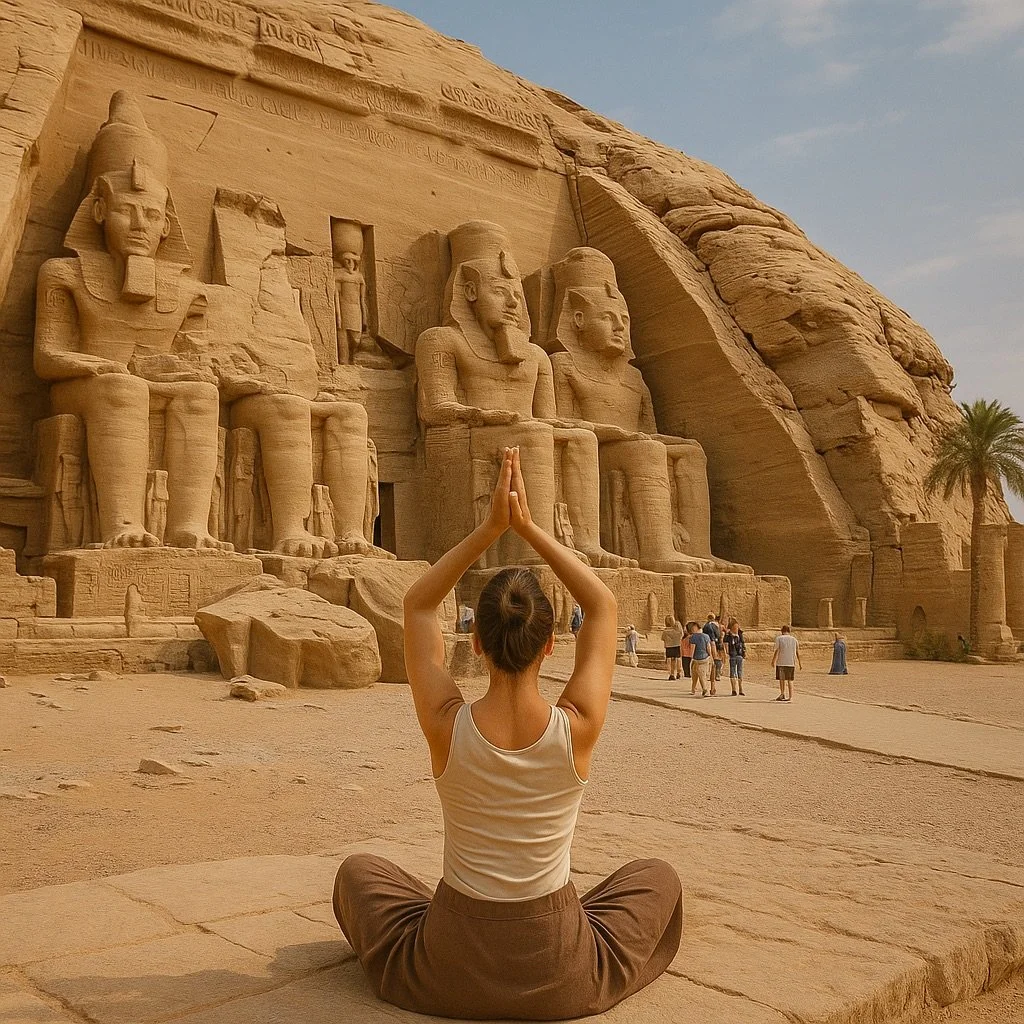Why Ethical Travel Matters: Redefining Tourism Beyond Carbon Footprints
Meditation at Abu Simbel Temples: A miracle built inside the mountain by King Ramses II
How Conscious Travel Is Reshaping Experiences and Why Egypt Is the Perfect Example
When people hear ethical travel, they often think eco-travel, carbon offsets, or sustainable resorts. But ethical travel is more than that. It’s not just about saving the planet, it’s about changing how we move through it. It’s about how we engage, what we support, and who benefits from our presence. In 2025, as travel returns to full swing, a new kind of traveler is emerging, one who wants to enjoy the world without exploiting it.
What Is Ethical Tourism?
Ethical travel is a holistic approach to tourism that takes into account the impact of our choices on people, culture, and the environment. It’s not a checklist of rules or a polished label, it’s a mindset.
It means:
• Respecting local communities and their traditions
• Choosing travel providers that offer fair wages and decent working conditions
• Supporting small, locally owned businesses
• Seeking connection, not just consumption
• Traveling slower, deeper, and with curiosity
• Minimizing harm, not just to the planet, but to people too
It differs from eco-tourism in that it doesn’t stop at nature. Ethical travel includes the social fabric of a place. It asks: who is benefiting from your trip? Are locals included in the tourism economy? Is culture being preserved or commodified? Are you invited in, or just looking through a lens?
Why This Matters in a Place Like Egypt
Egypt is a land of dualities: timeless beauty and rapid change, global fame and local struggle. Its ancient monuments draw millions, but behind the scenes, many communities still face marginalization, underpaid work, or exclusion from the benefits of tourism.
Ethical travel in Egypt means more than choosing a plastic-free hotel. It means:
• Hiring licensed local guides instead of big foreign operators
• Staying at family-run guesthouses instead of all-inclusive chains
• Visiting less-touristed places like Siwa Oasis or Nubian villages
• Engaging with artisans, farmers, and culture bearers
• Understanding history in context not just snapping pictures of it
Where Nordnile Comes In
At Nordnile, we believe Egypt deserves better and so do travelers. Our experiences are curated not for mass appeal, but for depth, fairness, and human connection. Whether you’re gliding down the Nile, wandering through medieval Cairo, or joining a yoga retreat in the desert, we make sure the people behind the experience are fairly treated and proudly represented.
We collaborate with both Egyptian and Swedish partners to create something that’s real, inspiring, and nourishing for everyone involved.
The Takeaway: Travel Is a Relationship
Ethical travel isn’t about being perfect. It’s about being intentional. It’s about asking: What’s my impact here? and What kind of traveler do I want to be?
When you travel ethically, you don’t just take memories you leave something valuable behind. And often, what you get in return is deeper, more transformative than any five-star hotel or fast itinerary could offer.

